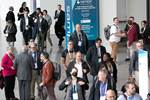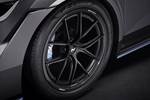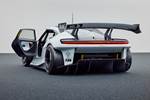Hyundai, Toray team up for composite materials development
Through the partnership, Hyundai Motor Group expects to support its long-term electrification strategy, enhance customer experiences and ensure vehicle safety.
Source | Getty Images
(Seoul, Korea) has signed an agreement for strategic cooperation with Toray Industries Inc. (Tokyo, Japan) to secure capabilities to develop lightweight and high-strength materials for environmentally friendly and high-performance vehicles.
The joint R&D includes carbon fiber-reinforced polymer (CFRP) parts that are expected to improve the performance of electric vehicle (EV) batteries and motors. The cooperation will lean on Toray’s specialization in fibers and textiles, performance chemicals, carbon fiber composites, environmental engineering and life science.
“Hyundai Motor Group aims to leverage this strategic partnership to strengthen its position as a global leader in mobility solutions,” says Hyundai President Chang Song. “By combining our automotive expertise with Toray Group’s material technology prowess, we aim to gain a competitive edge in the global market.”
The partnership with Toray Group plays a key role in Hyundai Motor Group’s future mobility strategy, as it is adopting a comprehensive approach by pursuing fundamental advancements in material technology, in addition to electrification and software-defined vehicles (SDVs).
Related Content
-
Improving carbon fiber SMC simulation for aerospace parts
Simutence and Engenuity demonstrate a virtual process chain enabling evaluation of process-induced fiber orientations for improved structural simulation and failure load prediction of a composite wing rib.
-
Infinite Composites: Type V tanks for space, hydrogen, automotive and more
After a decade of proving its linerless, weight-saving composite tanks with NASA and more than 30 aerospace companies, this CryoSphere pioneer is scaling for growth in commercial space and sustainable transportation on Earth.
-
Thermoplastic composites: Cracking the horizontal body panel nut
Versatile sandwich panel technology solves decades-long exterior automotive challenge.



